“Almost certainly, the Earth’s orbit will survive”
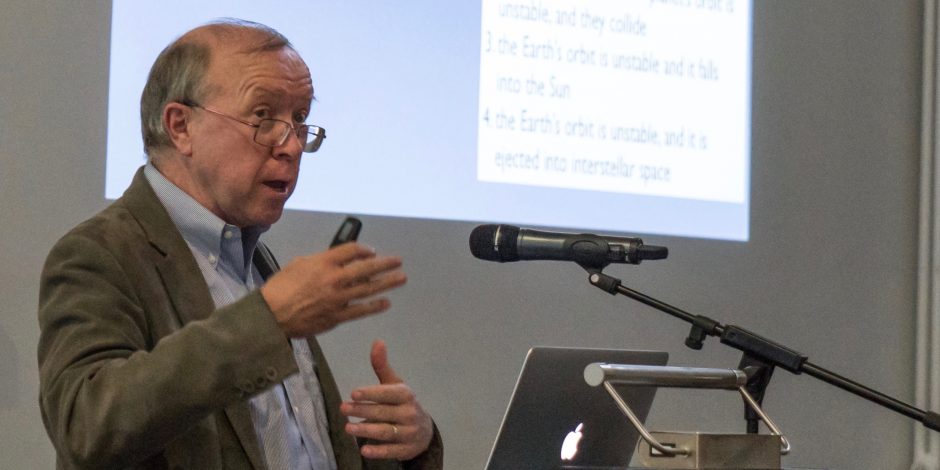
To students, Scott Tremaine is best known as co-author of “the bible of astrophysics”. His textbook “Galactic Dynamics” is one of the most cited references in astrophysics. The Richard Black Professor at the world famous Institute for Advanced Study (IAS), Princeton, is also an expert in the theory of the Solar System and is credited with coining the name for the Kuiper Belt. In a lecture at the University of Bern, Scott Tremaine talked about „The Long-term Stability of the Solar System“.
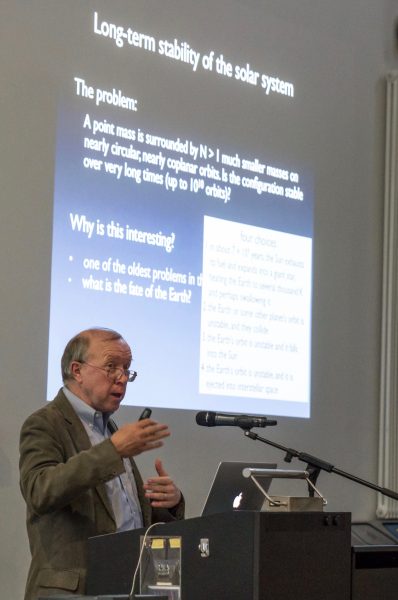
Prof. Scott Tremaine during his lecture at the University of Bern in July 2016. (Image: Sylviane Blum)
PlanetS: What is the fate of the Earth?
Scott Tremaine: There is a very small chance that we will have a catastrophic collision with Mercury. But almost certainly, the Earth’s orbit will survive until the end of the Sun’s lifetime. Then, as the Sun expands, the Earth will get hotter and hotter. What will happen then is hard to know because it depends on the details of the final evolution of the Sun. Either the Earth will be swallowed in the Sun or – most likely – it will get burned to a crisp but survive.
So we don’t have to be afraid of a collision?
We do have to be afraid of collisions with small things, maybe a few kilometres across. There are plenty of comets and small asteroids around. We know that these collide with the Earth from time to time and can cause catastrophic mass extinctions, nuclear winter and such terrible effects. But we don’t have to worry about colliding with something that will be similar in size to the Earth and completely destroy it.
How about the other planets in our Solar System?
Mercury is in more danger. There is a chance of maybe one in a hundred that Mercury will be lost from the System before the Sun dies. It looks like Mercury is the only one that is in relative danger. But even there, one percent is not so bad. All the other planets seem to be fine. Again, all the planets are subject to occasional collisions with small bodies that could be disastrous for the ecosystem on the surface, but the planets themselves will stay in pretty much the same orbit for a very long time.
How was it in the past?
The trouble is we don’t know because if two planets collide they are either gone or they merge and we don’t really have any way to tell what happened in the past. Because so many of the possible orbits in the Solar System are unstable my personal guess is that it has happened in the past when we were much younger than we are now. Maybe instead of 8 planets we had 9 or 10 or 11 and some of them have merged or got lost.
With better computers in the future is there a chance that you will get more precise results or are there theoretical limits?
Certainly you can hope to get more precise results but because the system is intrinsically chaotic it is very difficult to follow precisely what the planets have done over very long periods. If there was a collision maybe a billion years ago, we would not have been able to tell just following the orbits back. So I think we won’t ever really know the complete history of the solar system.
How did the discovery of all the exoplanets in the past 20 years affect your work?
It has affected my work because it says that many of the exoplanet systems appear to be less stable than the Solar System. The spaces between the planets are smaller, the masses of the planets are larger, and they appear to be more susceptible to instability. But I think the most important thing is: When you only have one system, like the Solar System, you can never tell which features are accidental and which features are characteristic of some general principle. Before the extrasolar planets were discovered many people thought that you can’t make a planet much bigger than Jupiter but now we know that you can. So Jupiter’s mass is accidental. So it has just given us some insight into which features of the Solar System we should focus on to try to understand how it formed.
The last 20 years must have been very exciting with the discovery of so many new planetary systems.
It has been very exciting for everybody. What I noticed when we were looking for graduate students is that all the graduate students want to be either in cosmology or exoplanets. They know which fields are the most exciting ones. Bern is very lucky to have such a strong group of people doing exoplanets already, this is very attractive for students.
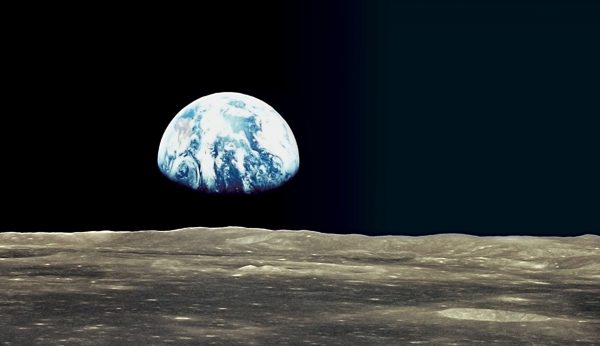
The Earth photographed from the Moon by the Apollo astronauts. (Image: NASA)
Besides working as a scientist as a member of the US National Academy you also were involved in political decisions.
I have been on various committees of the National Academy which provided advice to the government. Most of the advice has been about funding for astronomy and exoplanets studies.
Is there enough money for science in the US?
No. The funding in the US has been under a tremendous strain – more than in Europe where the EU is putting quite a lot of money into science. The funding situation is quite bad in the US. It’s partly because the scientific community has been growing faster than the budgets, it’s partly because scientific experiments became more expensive, and it’s partly because the funding agencies are being asked more and more services, such as to outreach to the public and help with educating people on a pre-university level.
If you could have one wish: What would be your dream result in science?
With exoplanets I think the dream would be to get a picture of an exoplanet that is like the picture that the Apollo astronauts took of the Earth. Back in the 1960s that picture changed the view of the Earth and inspired people to realise how beautiful and fragile it was. I think a similar picture of an exoplanet would have a similar effect. If you could ever do that, that would change everybody’s view about our place in the Universe. I am pretty sure that we won’t get one while I am alive but maybe somebody’s grandchildren will get to see one.
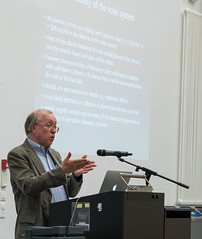
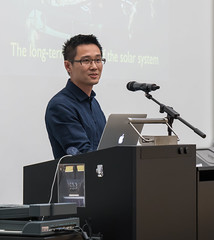
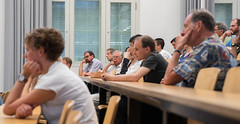
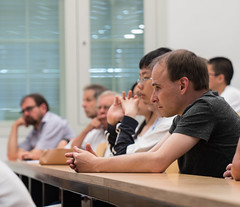
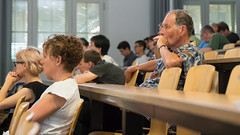
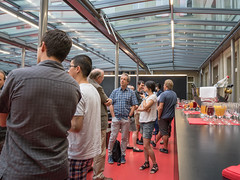
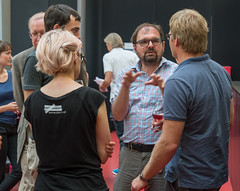
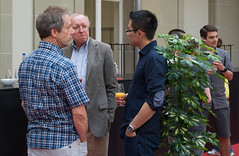
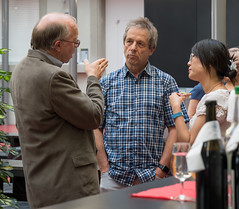
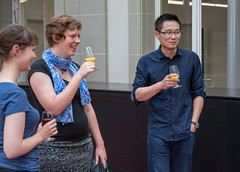
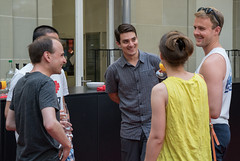
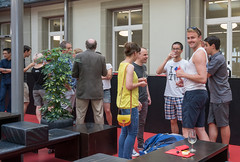
http://www.csh.unibe.ch/research/interaction_mechanisms/csh_distinguished_lectures/index_eng.html
Categories: News
